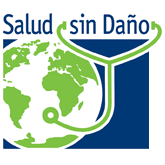Climate change an urgent topic at WHO Executive Board meeting
The World Health Organization (WHO) Executive Board received broad support for two far reaching reports that draft a comprehensive global strategy on health, environment and climate change, at the WHO Executive Board Meeting in February 2019. Both reports will be considered at the 72nd World Health Assembly in 2019.
The first report, a global strategy report by the Director-General, provides a vision and options of approaches for the health community to respond to climate change related health risks and challenges through 2030. It declares that new environmental, climatic and health issues are emerging and require rapid identification and response. To respond to these challenges the report states that society and individuals will need to rethink the way we live, work, produce, consume and govern. It goes on to say that this transformation requires focusing action on upstream determinants of health, environment and climate change in an integrated and mainstreamed approach across all sectors.
The global strategy report calls on cross-sectoral action and leadership from the health sector to achieve these changes and coordinate working together with other sectors with relevance to health, environment and climate change to improve lives.[1] The report also calls on the health sector to lead by example in demonstrating good practice in sustainability, by reducing the environmental impact of health care practice; and to act as leaders and advocates for health and sustainable development.
The WHO Executive Board heard mostly supportive comments from member states and non-state actors on draft strategies for health, environment and climate change. These included comments from GGHH member, the International Federation of Hospital Engineering (IFHE), who recommended that WHO:
1. Seek to make its own operations carbon neutral.
2. Establish a focused effort to help the health sector to achieve carbon neutral health delivery.
3. Participate in the policy process to encourage the countries of the world, and the health systems of the world, to achieve carbon neutrality by 2050, with significant reductions by 2030.[2]
The second report, EB144/16: Health, environment and climate change, Draft global plan of action on climate change and health in small island developing states, focused on issues that are especially relevant to a project HCWH has been working on with WHO, Maldives and the Maldives Ministry of Health (GGHH’s first National Health System member). The report stresses that: Small island developing States are on the front line, encapsulating the full range of acute to long-term risks, including: · more extreme floods, storms and drought; · increased risks of water-, vector- and food-borne infectious diseases; · increased risks of noncommunicable diseases; · sea-level rise threatening fragile health care facilities, mainly but not exclusively situated in coastal areas.[3]
Throughout the latter half of 2018, HCWH worked with WHO, Maldives and the Maldives Ministry of Health to assess multiple hospitals and health centers and identify policies and strategies to mitigate their climate impacts and improve their resilience to the risks posed by climate change.
For more information:
WHO Executive Board 144th Session Provisional agenda item 5.6 EB144/15 URL: http://apps.who.int/gb/ebwha/pdf_files/EB144/B144_15-en.pdf
IFHE statement, WHO Executive Board 144th Session Provisional agenda item 5.6 EB144/15 URL:
https://extranet.who.int/nonstateactorsstatements/meetingoutline/7
WHO Executive Board 144th Session Provisional agenda item 5.6 EB144/16 URL:
http://apps.who.int/gb/ebwha/pdf_files/EB144/B144_16-en.pdf
[1] WHO Executive Board 144th Session Provisional agenda item 5.6 EB144/15 URL: http://apps.who.int/gb/ebwha/pdf_files/EB144/B144_15-en.pdf
[2] IFHE statement, WHO Executive Board 144th Session Provisional agenda item 5.6 EB144/15 URL: https://extranet.who.int/nonstateactorsstatements/meetingoutline/7
[3] WHO Executive Board 144th Session Provisional agenda item 5.6 EB144/16 URL: http://apps.who.int/gb/ebwha/pdf_files/EB144/B144_16-en.pdf
